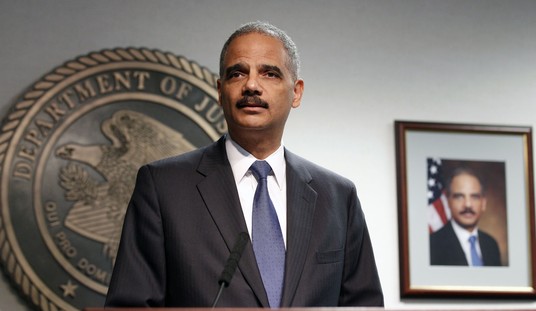Four months ago, the Associated Press uncovered an abortive attempt by the US Agency for International Development to create a Twitter-like social media network in Cuba in order to facilitate unrest and revolution against the Castro communist government. That operation may have seemed like a lark, but now the AP reports that it wasn’t the only covert operation for USAID in Cuba. The agency used HIV prevention among its covers for provoking youth into rebellion, a discovery that may put more of its operations under scrutiny elsewhere:
Beginning as early as October 2009, a project overseen by the U.S. Agency for International Development sent Venezuelan, Costa Rican and Peruvian young people to Cuba in hopes of ginning up rebellion. The travelers worked undercover, often posing as tourists, and traveled around the island scouting for people they could turn into political activists.
In one case, the workers formed an HIV-prevention workshop that memos called “the perfect excuse” for the program’s political goals — a gambit that could undermine America’s efforts to improve health globally.
But their efforts were fraught with incompetence and risk, an Associated Press investigation found: Cuban authorities questioned who was bankrolling the travelers. The young workers nearly blew their mission to “identify potential social-change actors.” One said he got a paltry, 30-minute seminar on how to evade Cuban intelligence, and there appeared to be no safety net for the inexperienced workers if they were caught.
“Although there is never total certainty, trust that the authorities will not try to harm you physically, only frighten you,” read a memo obtained by the AP. “Remember that the Cuban government prefers to avoid negative media reports abroad, so a beaten foreigner is not convenient for them.”
In all, nearly a dozen Latin Americans served in the program in Cuba, for pay as low as $5.41 an hour.
The aim of the programs isn’t in question. The Castro regime has a brutal human-rights record and has subjected Cubans to misery and poverty for decades. The US has always considered Cuba as a key interest, and the Castro regime as a problem to be solved, although every administration since Dwight Eisenhower’s has failed to free the Cubans from despotism. Fidel Castro, now apparently semi-retired, has been wily enough to play the rest of the world against the US and survive, and now his brother Raul has managed to do so for the last several years as the dictator.
The choice of agency, though, is more than a little curious. USAID styles itself as an outreach agency to “end extreme poverty and to promote resilient, democratic societies while advancing our security and prosperity,” which is a noble enough mission when conducted overtly. It operates around the world to fight poverty and disease, particularly HIV. They also use their investment dollars quite explicitly to promote democracy in places such as Turkmenistan and Kyrgyzstan. The Cubans probably wouldn’t allow USAID to operate that openly on those efforts, but that may not be the only place where that’s true and where USAID is working on global health initiatives. This exposé will have some of those countries wondering just what USAID is doing with HIV workshops and other seemingly innocuous and beneficial efforts.
USAID issued a statement denying the story, but not very specifically:
Congress funds democracy programming in Cuba to empower Cubans to access more information and strengthen civil society. USAID makes information about its Cuba programs available publicly at foreignassistance.gov. This work is not secret, it is not covert, nor is it undercover. Instead, it is important to our mission to support universal values, end extreme poverty and promote resilient, democratic societies. Chief among those universal values are the right to speak freely, assemble and associate without fear, and freely elect political leaders. Sadly, the Cuban people and many others in the global community continue to be denied these basic rights.
One paragraph in the article captures the purpose of these and many civil society programs, which is to empower citizens to “tackle a community or social problem, win a ‘small victory’ and ultimately realize that they could be the masters of their own destiny.” But the story then goes on to make sensational claims against aid workers for supporting civil society programs and striving to give voice to these democratic aspirations. This is wrong.
If the AP misreported the story, then “this is wrong” definitely applies to them. If the AP got it right, though, “this is wrong” may apply better to efforts to use USAID and its poorly-trained recruits into a covert-ops agency.








Join the conversation as a VIP Member